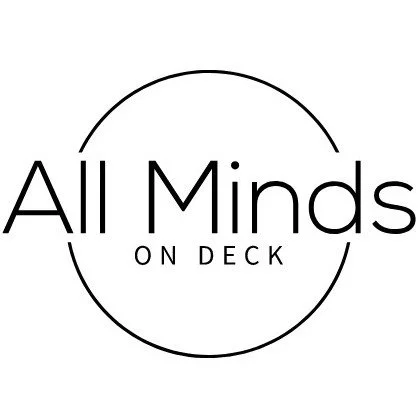The Secret to the Source
What's Team Coaching?
If your teams were ingredients, would they make a five-star meal or a microwave dinner? Team coaching can make the difference between a group of random roommates and a synchronized team that makes magic happen. Think of it as organizational physiotherapy. We don't just look at the knee and its pain (that difficult team leader everyone complains about). We examine how the whole body moves together. We look at team dynamics.
Why?
Yes, there are statistics about how high-performing teams are 50% more productive and generate 26% higher revenue per employee. You probably already know that dysfunctional teams are expensive luxury most organizations can't afford.
When Patrick Lencioni's five team dysfunctions show up, they look like this:
Trust Deficits: "I have a great idea, but the last time I shared one, it appeared in someone else's presentation. So I'll just sit here quietly."
Conflict Avoidance: "That strategic direction sounds... interesting." [Internal voice: "This is the worst idea I've ever heard about."]
Commitment Issues: The meeting ends with everyone nodding in agreement, followed by absolutely nobody doing anything differently afterwards.
Accountability Problems: Three people working on the same report while a critical bug in the checkout flow sits untouched.
Missing results: "Wait, what were we trying to deliver again? I was too busy making a slide for a leadership review."
Traditional organizations can operate like kingdoms, especially if they are thin on strategy or feel competitive pressure - top-down commands need to be followed and the creativity within the team is not being leveraged. A team-centric approach transforms this into a round table where everyone brings their unique powers to solve complex challenges. McKinsey research shows that a team-centric shift creates up to 30% efficiency gains. That's like getting 30% more work done or finishing at 3pm instead of 5pm every day. (which would you prefer?)
Why Now?
Things always have and will take a village. If you haven't noticed, the workplace has changed just a bit. We've gone from sharing birthday cake in conference rooms to showing up to Zoom meetings without pants. Remote and hybrid work have permanently altered how teams connect. At least three generations are attempting to collaborate despite having completely different views on everything from communication methods to whether "sick" is "awesome" or "contagious." Global teams span cultural divides. And with the pace of change accelerating faster every day, no individual leader can possibly manage all the necessary adaptations alone. With only 23% of employees globally currently engaged at work and burnout rates going through the roof (particularly in tech), organizations face an unprecedented motivation crisis. Motivation often comes from being seen, being heard, and collaborating with and learning from talented people. People want to enjoy their workplace.
Who’d Care?
Team coaching delivers transformative results for teams across the organizational ecosystem:
Leadership teams trying to see the forest through the trees (and occasionally bumping into those trees)
Cross-functional teams attempting to speak seven different departmental languages without a translator
High-growth teams where yesterday's solutions fit today's problems like last year's jeans after holiday season
Virtual teams building relationships through the magical medium of unstable internet connections
Multicultural teams navigating invisible cultural icebergs that sink collaborative ships
Project teams juggling priorities like a one-armed octopus
Technical teams trying to balance innovation with not breaking everything
It sounds like magic, but all it takes is a different kind of interaction. This work typically comes from Learning and Development budgets. Both team leaders and HR professionals can initiate the process, and contrary to popular belief, requesting team coaching isn't admitting failure. It's like hiring a personal trainer - you're not saying you don't know how to exercise; you're saying you want better results, faster. Our engagements range from single-session interventions (for teams needing a specific breakthrough) to multi-month partnerships that create lasting transformation. We like to think of our work as preventative medicine rather than emergency surgery.
The money part
Let's talk money, because it’s all about the ROI.
Team coaching delivers concrete value through:
Reducing turnover costs (averaging $15,000-$30,000 per replacement)
Eliminating redundant work by eliminating silos
Enhancing innovation via more safety to speak and act freely
Building engagement and creative leverage
As Forrester Research notes, even modest improvements in team effectiveness translate to substantial financial returns—with a 10% improvement in customer experience potentially yielding significant revenue increases. And guess who creates that customer experience? Yes, your teams. The multiplier effect is what makes team coaching so potent.
For organizations navigating today's complex landscape, a smoothly collaborating team is the fundamental infrastructure that makes everything else possible.
Ready to turn your teams from accidental roommates into collaborators? We're here when you are.
